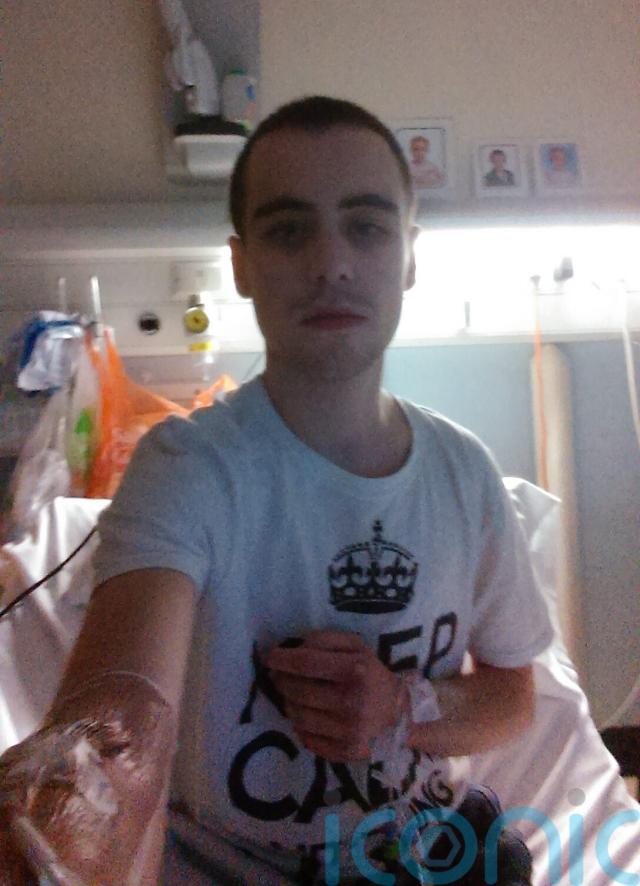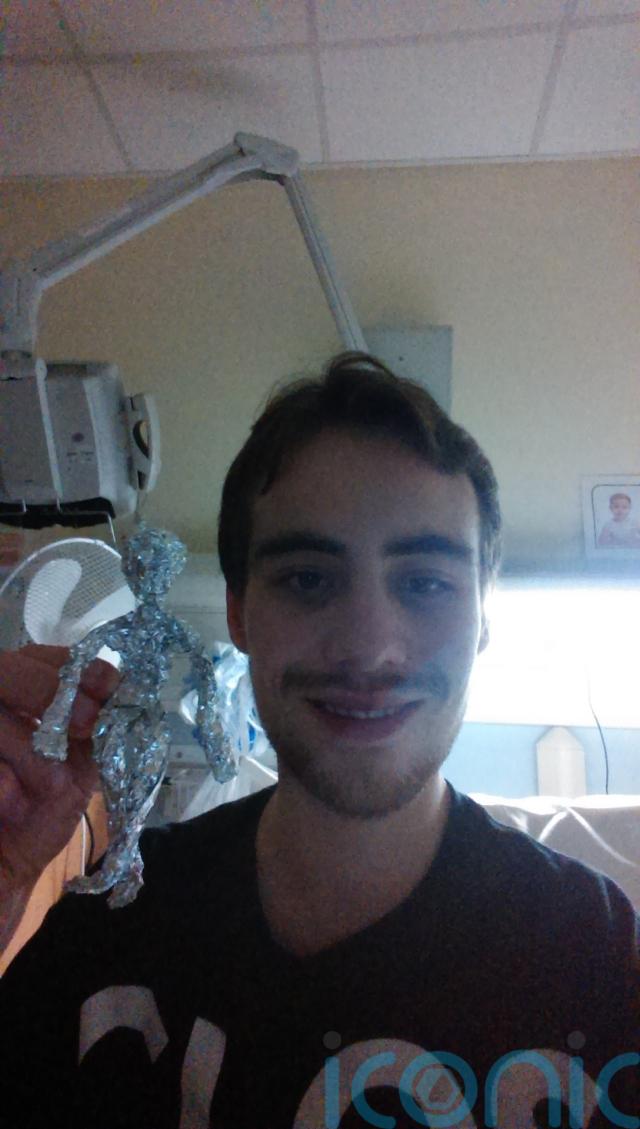
A taxi driver has said his treatment for a heart problem has left him “scarred for life” due to NHS “negligence”, adding that he feels even more let down after the hospital failed to record the resolution meeting he hoped would put his mind at rest.
Steven Firn, from Abingdon, Oxfordshire, was treated at John Radcliffe Hospital between 2013 and 2014 after his heart began failing, and was fitted with a chest drain to evacuate fluid that was building up in his abdomen every few days.
After his family was told the 35-year-old could have just weeks to live, he was transferred to Newcastle Freeman Hospital, where he said doctors removed his chest drain and told him it should never have been fitted in the first place.
The father-of-three said the procedure, and having to drain litres of fluid from his body every couple of days, took a heavy toll on his mental health, and that he is reminded of it every time he sees the scars on his chest.
Last June, Steven confronted doctors about what happened during a meeting he hoped would bring him closure, and asked for it to be recorded so he could remember what was said – but a few days later he was told the Dictaphone had failed.

He said the hospital refused to hold another meeting, so he tried to raise a formal complaint, which was denied due to the NHS’s policy that, unless an extension is granted, complaints should be made within 12 months of the incident occurring or coming to light.
Out of options, Steven has launched a petition on Change.org demanding the Government extends the one-year window.
“I asked for the meeting to be recorded because it’s a whole year’s worth of treatment,” Steven, who has a seven-year-old daughter, Ariya, and one-year-old twins, Axel and Connie, told PA Real Life.
“They put their hands up and admitted negligence and said they were sorry about the care that was given to me.
“The complaints manager who organised the meeting said to me three or four days later ‘I’m ever so sorry but the recording failed’ and they won’t give me another one.”

Steven was born with congenital heart disease, a general term used to describe a range of birth defects that affect the normal functioning of the heart.
As a baby, Steven underwent several operations, including a Fontan procedure, to divert oxygen-poor blood to his pulmonary artery instead of his heart chambers.
The condition meant Steven was unable to play sports in school and had to take an aspirin every day to avoid blood clots, but otherwise he enjoyed a “normal” life.
Then in 2013, at the age of 25, Steven noticed his stomach was getting bigger, which he initially chalked up to putting on weight because he was spending a lot of time driving his taxi.
But when he visited the John Radcliffe Hospital in Oxford alarm bells went off.

“I thought, being a taxi driver, that I was just putting on weight, but it turned out my heart was failing,” he said.
“My liver was overworking itself to try and keep my heart working and it was producing fluid in my abdomen.”
To remedy the situation, he was fitted with a chest drain – a narrow tube inserted between the ribs – and told to drain the fluid daily into vacuum containers.
“I had to drain two to three litres every other day,” he said.
Steven, who still has scars on his chest from the operation, said the procedure was painful and that he still suffers from “nightmares and flashbacks”.
Over the next year, the fluid got worse, and in October 2014 Steven said his family were told his days were numbered.

“My heart was failing more and more and the doctors told my family that I’ve probably got less than two weeks to live,” he said.
“They said there was nothing they could do but ‘keep him comfortable’. So basically my heart was failing until I died.”
Steven was transferred to Newcastle Freeman Hospital a few days later and said he was shocked to discover the chest drain had not been necessary.
“They took the tube out straight away when I got to Newcastle and said it should never have been there,” he said.
“They upped my water tablets and put me on fluid restriction, and within a week it was gone.”
On December 12 2014, Steven was given a heart transplant and his physical health has been good ever since.

But Steven said the treatment he received at John Radcliffe Hospital has left a mark on his mental wellbeing.
“After having my transplant I was just thankful to be here, but I have never been the same since,” he added.
Steven was diagnosed with PTSD and anxiety and depression in 2022, which he believes was brought on by his “traumatic” medical experience.
“Sometimes I can’t sleep at night because I still get nightmares,” he said.
“Every time I have bath or shower, I can see the scars and it just reminds me of what happened. I’m scarred for life, knowing they shouldn’t be there.”
Steven’s sister Hayley, who helped him get through the treatment, suggested he sought answers from the hospital and the pair attended a “resolution meeting” on June 16 2023.

During the meeting, which was supposed to be recorded, Steven said the consultants admitted “negligence” and “breaching their duty of care”.
“The heart specialist who was sat opposite me put her hands up and said ‘We’re ever so sorry, what we know isn’t what we knew then’,” said Steven.
But a few days later, Steven received an email, seen by PA Real Life, which said “the Dictaphone had failed” and they could not share the recording.
Steven said the mistake compounded his anxiety about the situation and he tried to lodge a formal complaint, but learned he was too late.
According to the NHS website, complaints should normally be made within 12 months of an incident occurring, although this can be extended provided there is a good reason for not making it sooner.

This did not apply in Steven’s case and he has now launched a petition on Change.org demanding the NHS scraps the one-year window.
He said: “The current one-year cut-off point for complaints leaves many victims of medical negligence without any chance to seek justice or even an apology.
“It is a much-needed change. No other victim of medical negligence should have to suffer in silence because they were unaware of the time limit to raise their complaint or simply not emotionally ready yet.”
Dr Andrew Brent, chief medical officer at Oxford University Hospitals NHS Foundation Trust, said: “While we are unable to comment on the detailed treatment of individual patients, we are familiar with the issues Mr Firn has raised.
“Our Complaints team, along with the relevant clinical staff, have met with Mr Firn to discuss and address his concerns, and his wellbeing has always been our priority.”
Subscribe or register today to discover more from DonegalLive.ie
Buy the e-paper of the Donegal Democrat, Donegal People's Press, Donegal Post and Inish Times here for instant access to Donegal's premier news titles.
Keep up with the latest news from Donegal with our daily newsletter featuring the most important stories of the day delivered to your inbox every evening at 5pm.